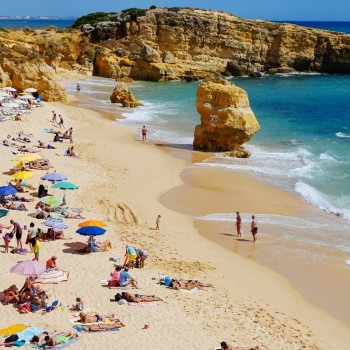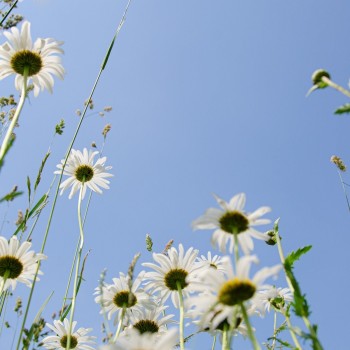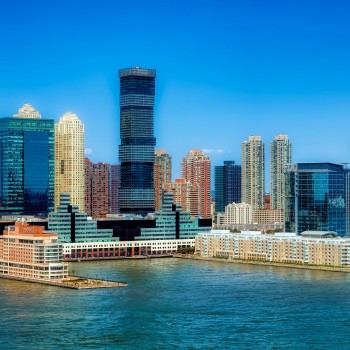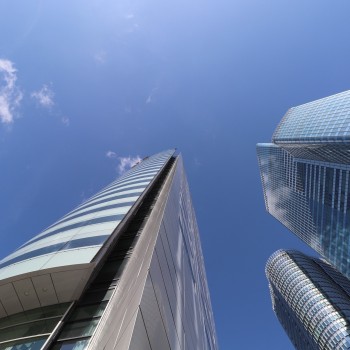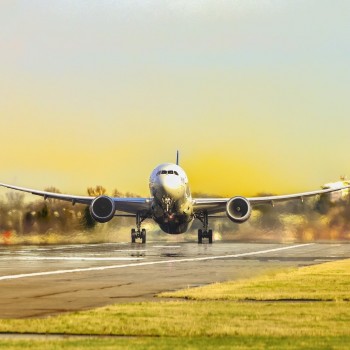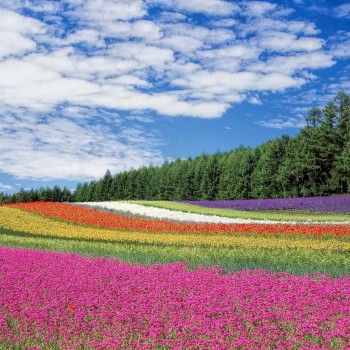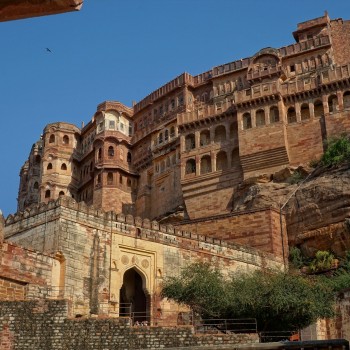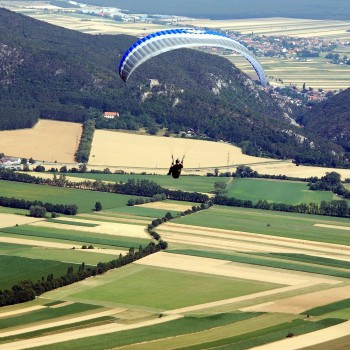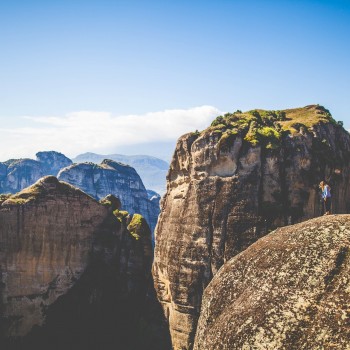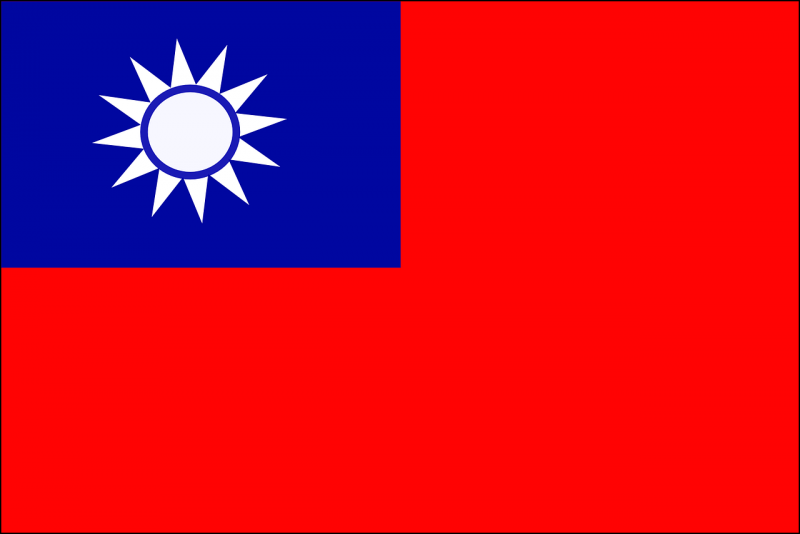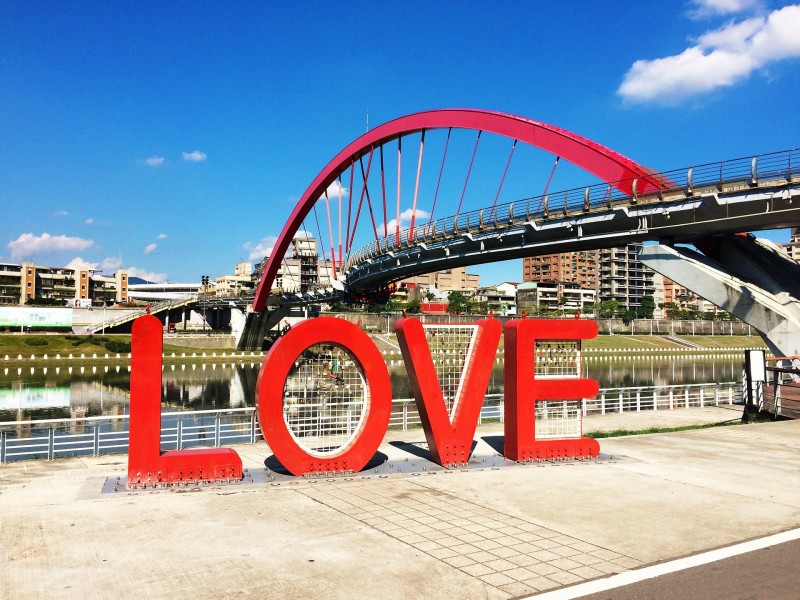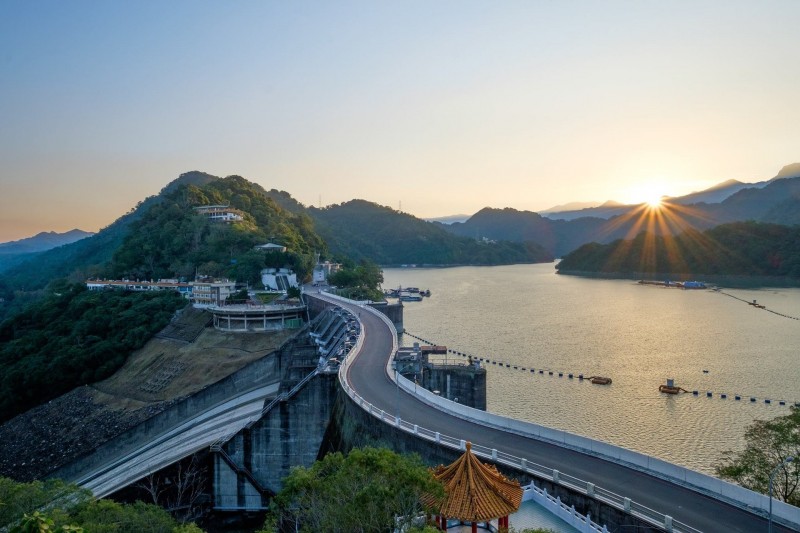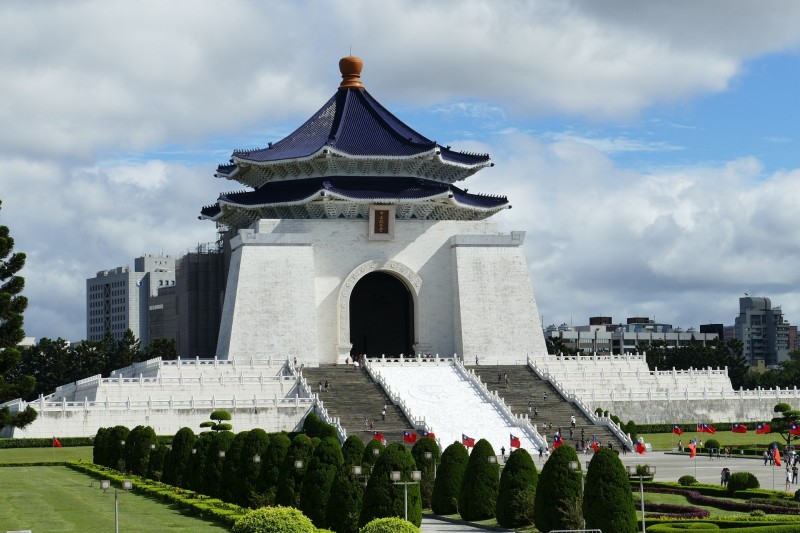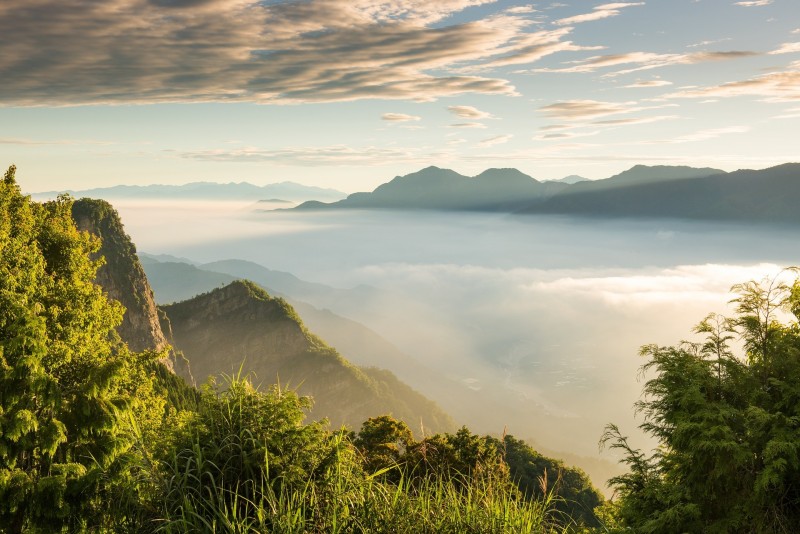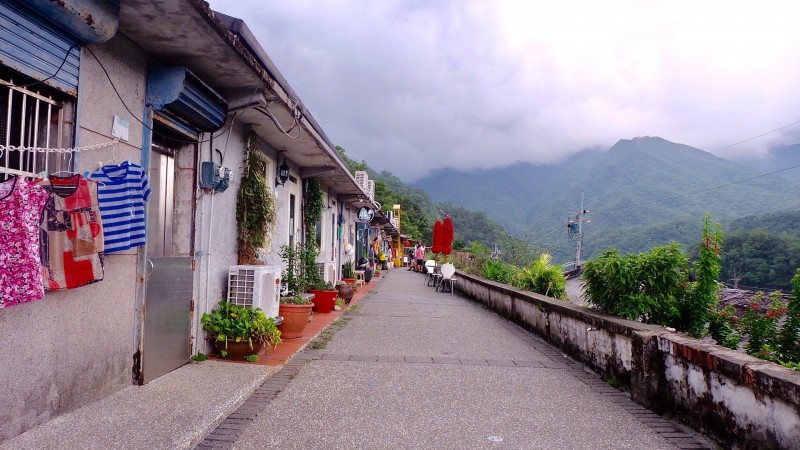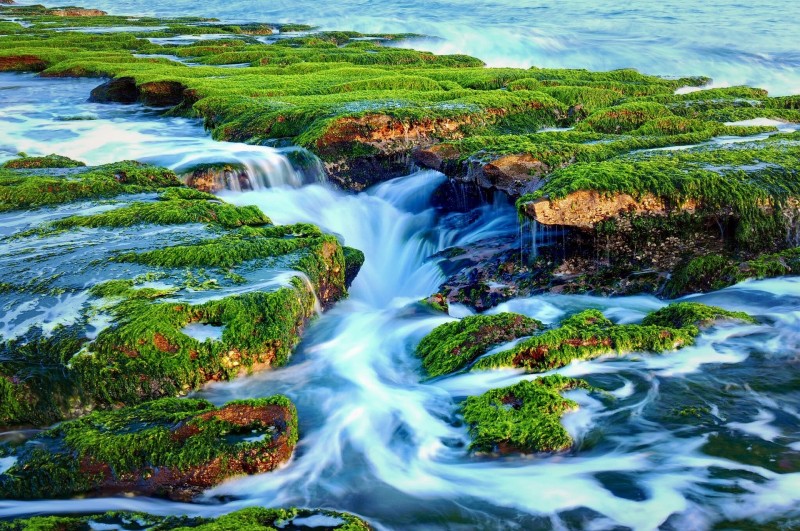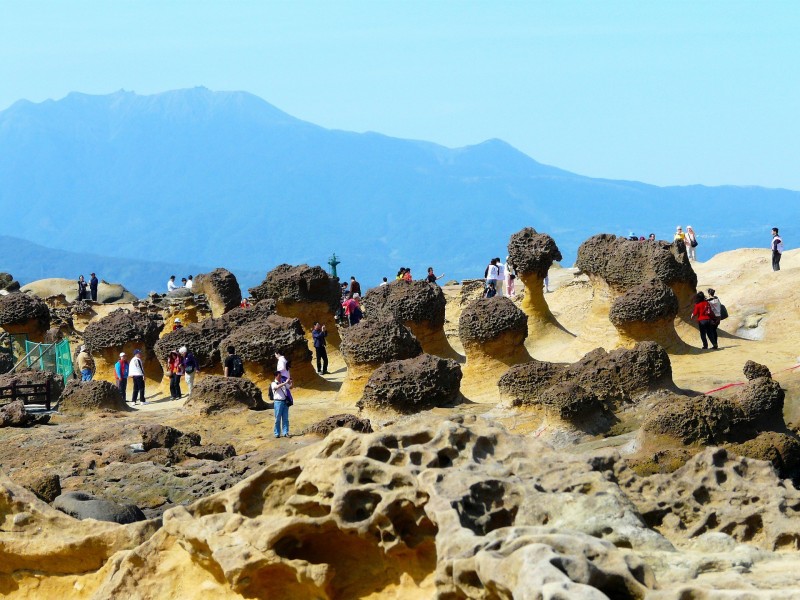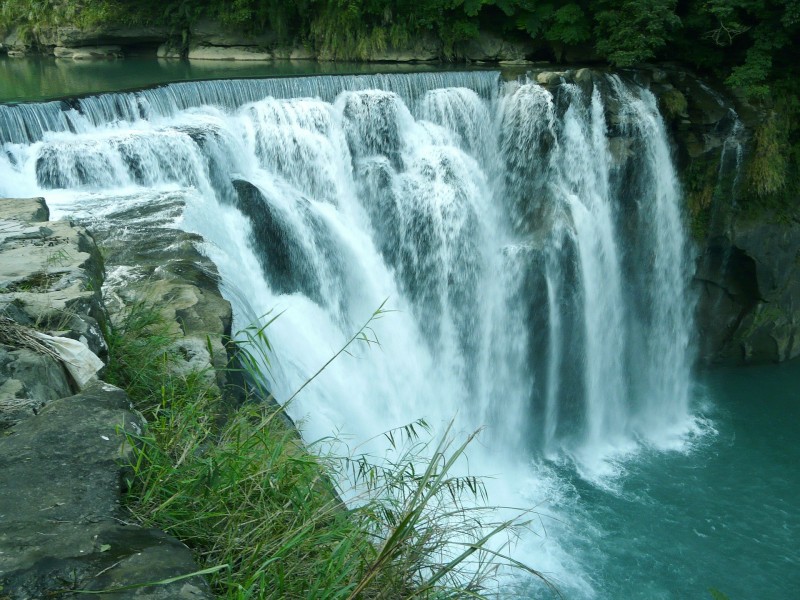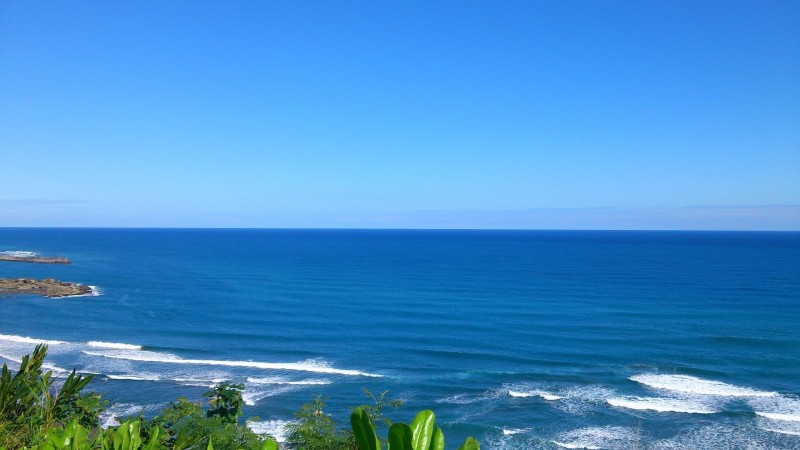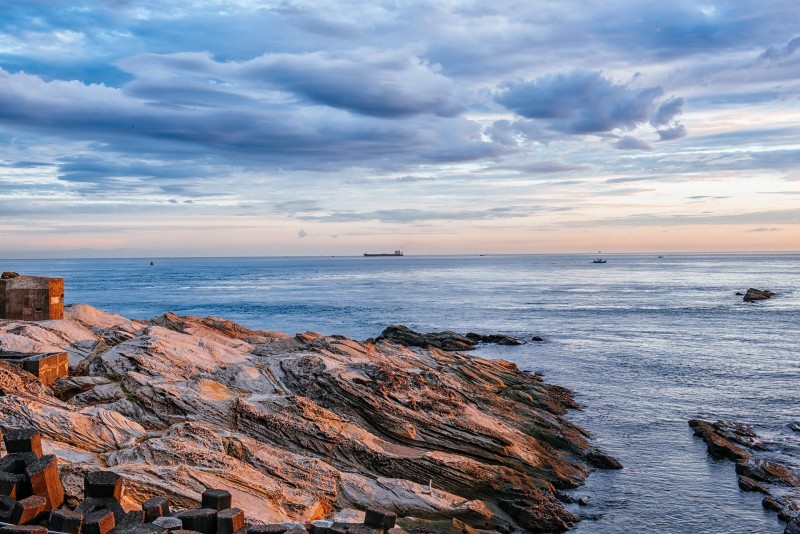Taiwan
Taiwan
Capital city description
The capital of Taiwan of the Republic of China and Taiwan's largest city is Taipei. It is home to over two and a half million people in Taiwan. Located in Northern Taiwan, Taipei City is an enclave of the municipality of New Taipei City that sits about 25 km (16 mi) southwest of the northern port city of Keelung. Taipei is the economic, political, educational, and cultural center of Taiwan and one of the major hubs in East Asia.
Taipei is part of a central high-tech industrial area. Railways, highways, airports, and bus lines connect Taipei with all aspects of the island. Two airports – Songshan and Taoyuan, serve the city. Taipei is home to various world-famous architectural or cultural landmarks, including Taipei 101, Chiang Kai-shek Memorial Hall, Dalongdong Baoan Temple, Hsing Tian Kong, Lungshan Temple of Manka, National Palace Museum, Presidential Office Building, and Taipei Guest House.
Climate
Taiwan's climate is tropical, with mild winters and hot, rainy summers. The period May-September is very drizzling throughout the country because of the summer monsoon, while in the other seasons, rainfall depends on latitude and slope exposure. However, winter is the least rainy season everywhere.
Languages spoken
Mandarin Chinese is the official language of Taiwan and is used by most of the population. Hokkien, the native language of the Hoklo ethnic group, is the second most popular language in the country. Some popular foreign languages spoken in the country are Japanese, English, and Vietnamese.
Fun/Fascinating Facts
- Biking is famous in Taiwan; Taiwanese people prefer cycling. Although other ways such as the metro train, trams, and roads are well developed, people prefer bicycles because they exercise and beat traffic jams at the same time. Taipei has well-developed cycling paths that pedestrians and vehicles are prohibited from using.
- Taiwanese are sensitive about their skin. It typically involves pollution and fears of acid rain on their skin. Most Taiwanese don't like the rain; walking in a bit of rain is a no-no in the culture, even if it is only for a few seconds.
- Bubble tea is sold in almost every corner of Taiwan. Bubble tea was originally created in Taiwan in the 1980s, after which it has spread all over Asia and even to western countries. Bubble tea, also called boba or pearl tea, has countless variations starting from the traditional milk tea with tapioca balls to refreshing fruit tea served with coconut jelly.
- Taiwan has a unique way of collecting trash. Trucks play Beethoven's Fur Elise to prompt the citizens to bring out their garbage.
- Taiwan boasts the most extensive collection of Chinese art in the world.
Unique Customs/Traditions
- The Taiwanese entertain their guests at home only when they build a relationship with a person. Until then, they engage their guests at restaurants, etc.
- Taiwanese eat with chopsticks. It’s considered impolite to hold chopsticks throughout a meal, so lay them down periodically on their rest as you chew and chat a bit. When eating, leave a touch of rice on the plate and return the chopsticks to the rest.
- Food baskets, good quality wines, etc., are popular gift items; however, pairs of scissors, knives, and other cutting devices are not gifted as they symbolize severing relationships. Furthermore, clocks, handkerchiefs, white flowers, and straw sandals are also not given as they correspond to funerals. The gifts are not wrapped in black, white, or blue. Instead, vibrant colors such as red, yellow, and pink are used.
- Taiwanese families are close-knit and extended. Most Taiwanese people stay very close to their parents, even after marriage.
Popular universities
| Name | Description | |
|---|---|---|
| National Taiwan University | Founded in 1928, National Taiwan University (NTU) is the most prestigious university in Taiwan and is among the top 100 universities in the world. Guided by independent thought and a pioneering spirit of enterprise, students at National Taiwan University (NTU) become a part of the nation's most prosperous center of learning and receive a diverse and excellent education. National Taiwan University (NTU) offers courses and programs leading to officially recognized higher education degrees such as bachelor's degrees, master's degrees, doctorate degrees in several areas of study. | |
| National Chiao Tung University | National Chiao Tung University ("NCTU") is a top research university in Taiwan and East Asia. Located in the city of Hsinchu, the university has been an optimal hub of academic and industrial collaboration and a forerunner of science and technological innovations. Currently, National Chiao Tung University (NCTU) shows a solid motivation to move forward to becoming a "Great University" that respects the values of diversity, creativity, and collaboration. National Chiao Tung University (NCTU) offers courses and programs leading to officially recognized higher education degrees such as bachelor's degrees, master's degrees, doctorate degrees in several areas of study. | |
| National Taiwan Normal University | National Taiwan Normal University (NTNU) has long been recognized as one of Taiwan's elite higher education institutions, located in the urban setting of the metropolis of Taipei City. Founded in 1922, NTNU was formerly an institution dedicated to teacher education. The university later evolved into a comprehensive university that provides students and scholars with opportunities to study and conduct various fields. National Taiwan Normal University (NTNU) offers courses and programs leading to officially recognized higher education degrees such as bachelor's degrees, master's degrees in several areas of study. | |
| National Tsing Hua University | National Tsing Hua University was established in Beijing in 1911 as “Tsing Hua Academy.” National Tsing Hua University has developed into a comprehensive research university offering a full range of degree programs in science, technology, engineering, humanities, social sciences, and management. National Tsing Hua University consistently ranks as one of the premier universities in East Asia and is widely recognized as a leading incubator for future leaders. | |
| National Cheng Kung University | National Cheng Kung University (NCKU) is a public higher education institution in Taiwan. National Cheng Kung University (NCKU)was founded in 1931. The university is located in the urban setting of the metropolis of Tainan City, Tainan. University is one of the most famous and prestigious universities in the world, offers courses such as Arts and Humanities, Engineering and Technology, Life Sciences and Medicine, Natural Science, Social Sciences and Management, and Computer Science. | |
| National Chengchi University | National Chengchi University is a non-profit public higher education institution located in the suburban setting of Taipei City, Taipei. Established in 1927 and officially recognized by the Ministry of Education of Taiwan, National Chengchi University (NCCU) is a large coeducational Taiwanese higher education institution. National Chengchi University (NCCU) offers courses and programs leading to officially recognized higher education degrees such as bachelor's degrees, master's degrees, doctorate degrees in several areas of study. | |
| Tamkang University | Founded in 1950, Tamkang University is the recognized leading private university in Taiwan, with the most extended history and the fastest rate of development. It has four campuses: Tamsui Campus, Taipei Campus, Lanyang Campus, and Cyber Campus. It also has eight colleges, 52 departments, 48 master's programs, 16 doctoral programs, and has over 23,000 students, more than 1,800 faculty and staff members, and over 270,000 alumni. | |
| Fu Jen Catholic University | Fu Jen Catholic University is a comprehensive university founded by the Holy See, established in Beijing in 1925. The university has a history spanning 96 years and has 12 colleges/schools, 51 undergraduate programs, 49 master's programs, and 12 Ph.D. programs. Fu Jen Catholic University (FJU) offers courses and programs leading to officially recognized higher education degrees such as bachelor's degrees, master's degrees, doctorate degrees in several areas of study. | |
| National Central University | National Central University is a non-profit public higher education institution located in the suburban setting of the medium city of Taoyuan City, Taoyuan. Founded in 1915 and officially recognized by the Ministry of Education of Taiwan, National Central University (NCU) is a large coeducational Taiwanese higher education institution. National Central University (NCU) offers courses and programs leading to officially recognized higher education degrees such as bachelor's degrees, master's degrees, doctorate degrees in several areas of study. | |
| National Chung Hsing University | National Chung Hsing University, established in 1919, is a non-profit public higher education institution located in the urban setting of Taichung City, Taichung. National Chung Hsing University (NCHU) is a large coeducational Taiwanese higher education institution. National Chung Hsing University (NCHU) offers courses and programs leading to officially recognized higher education degrees such as bachelor's degrees, master's degrees, doctorate degrees in several areas of study. | |
Festivals & Events
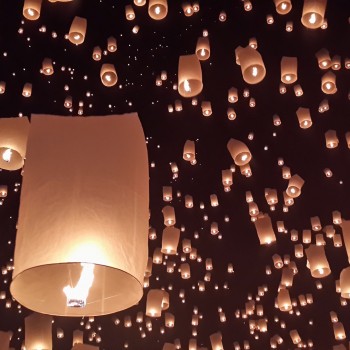
Pingxi Sky Lantern Festival
Date: January
The Pingxi Sky Lantern Festival is one of Taiwan’s most celebrated festivals and attracts people in their thousands. The main activity is to buy a lantern, scribble your desires and ambitions on it, then send it into the heavens. As the lamps heat up, they take flight and linger in the air for as long as the flame still flickers.
According to the elders of Pingxi, the Sky Lantern Festival originated in the Xing Dynasty, more than two thousand years ago. At that time, bands of outlaws frequently raided the lowland villages, forcing residents to seek refuge in the lush, verdant mountains. Village watchmen used “fire balloons” as signals to inform the refugees that their houses were safe once again. When those hiding in the hills saw the celestial flares, they knew it was time to go home.
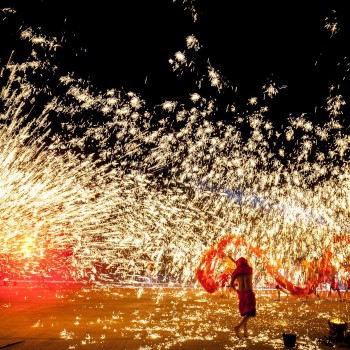
Yanshui Beehive Fireworks Festival
Date: February
Yanshui Beehive Fireworks Festival is one of the top three folk celebrations globally and one of Taiwan's most iconic religious events and dangerous festivals. While the procession of Divine Palanquins goes by, tens and thousands of beehive fireworks soar into the sky. People dress in whatever protective clothing they can find and walk by beehive structures filled with thousands of firecrackers and fireworks.
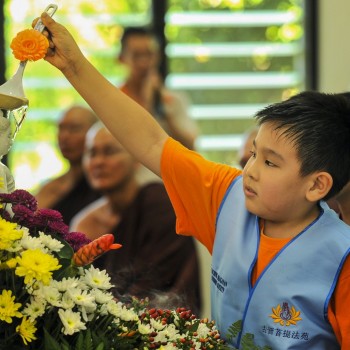
Buddha Bathing Festival
Date: 8th April
Buddha’s Birthday is the most sacred day to millions of Buddhists worldwide. There are different names and different dates of observance for this important festival. Buddhists all commemorate this day with a pious heart irrespective of traditions. As a tradition, Buddhists celebrate this day by Bathing the Buddha.
The Buddha bathing festival is held on April 8 and is a Buddhist religious ceremony honoring the birth of the Lord Buddha. The faithful bow three times to the Lord Buddha and then pour water and flowers of a statue of the baby Buddha.
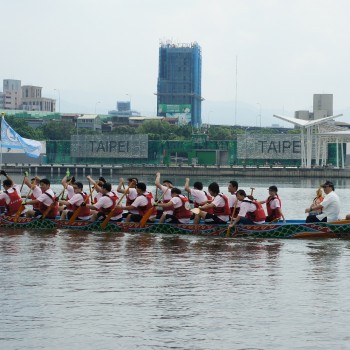
Dragon Boat Festival
Date: May or June (on the fifth day of the fifth month of the lunar calendar )
Dragon Boat Festival, also known as Poet’s Festival, commemorates the death of the poet and minister Qu Yuan of the ancient state of Chu during the Warring States period of the Zhou dynasty.
It is one of Taiwan’s most widespread annual festivals. The main attraction of this festival includes Dragon boat racing and the exchange of dumplings made of rice known as Zongi.
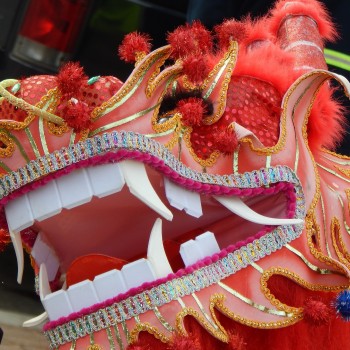
Chinese New Year
Date: February
The Chinese New Year has to be the most widespread and famous Taiwan festival. Chinese New Year is synonymous with red, fireworks, and stuffed bellies. The whole country will be packed with the red stuff – decorations, gifts, wall hangings, lanterns, and of course, red envelopes (hongbao). The Chinese New Year in Taiwan usually falls in February. The Taiwanese return to their family home and have a big family reunion, indulging in a festive meal to celebrate, and travel to see more family in the following days.
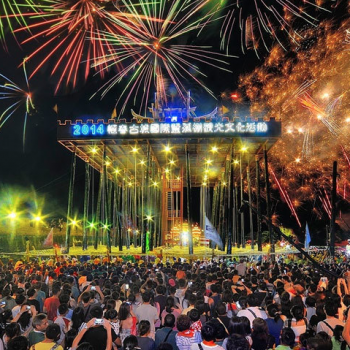
Grappling with the Ghosts
Date: The 7th month of the Lunar Calendar
Grappling with the Ghosts is a pole-climbing competition held during Ghost Month. In Taiwan, it is carried out only in Toucheng, Yilan County, and Hengchun, Pingtung County. Of these two locales, Toucheng has the biggest celebration.
Numerous natural disasters and diseases frequently hit the people who came to the Yilan province. As a result, many of them died and passed on to the afterlife. Grappling with the Ghosts festival was done for the souls of the dead to give easy access to the heavens. In the modern era, people also organize many pole climbing competitions.
.jpg)
Taiwan International Balloon Festival
Date: August, September
Taiwan International Balloon Festival includes flying shows, mooring activities, balloon rides, a night glow music concert, balloon wedding celebrations, and a summer camp, providing visitors with something to take home as well as great memories.
Hot air balloons that take to the sky during this festival have brought a lot of tourism to the area. The festival has been held each summer for ten weeks since 2011. The center of the festival is the beautiful Taitung County’s Luye Plateau, located among the picturesque mountains in Taiwan’s enchanting East Rift Valley.
Attractions / Top Sights
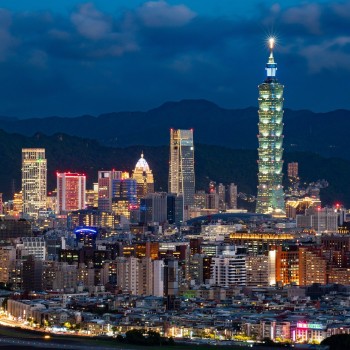
Taipei
When to visit: In summer
One of the top tourist attractions in Taiwan is Taipei, the capital of Taiwan. It is an economic and educational center of the country. Three sides of the mountains have surrounded the city. Taipei skyscrapers have competed with their height that including Taipei 101 skyscrapers.
Taipei attracts tourists with the trendy entertainment side, shopping malls, clubs, and fantastic restaurants and bars abound in this bustling city. There are loads of attractions on offer, such as the Taipei Zoo, the Botanical Garden, and the wonderful temple of Hsing Tian Kong.
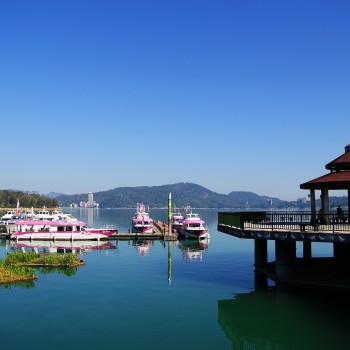
Sun Moon Lake
When to visit: November to March
Sun Moon Lake is a beautiful panoramic body of water in Yuchi Township, Nantou County, Taiwan. The Lake is a famous tourist destination amongst locals and foreigners alike. There are hotels and resorts located along the Lake's shores and multiple restaurants, shops, and bars that cater to visitors' every need.
With tons of outdoor activities on offer, enjoy bike riding, cable car, and boat rides, or take the little train at Jiji and experience the nostalgic Taiwan railway. It is perfect for sailing on the Lake, relaxing on a boat trip across its tranquil waters, and enjoying the breathtaking scenery.
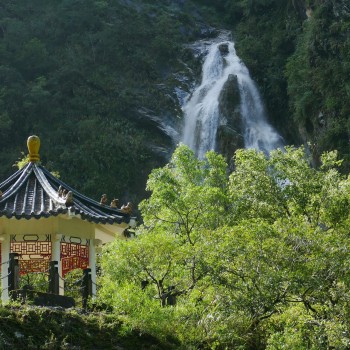
Taroko Gorge National Park
When to visit: October to June
Taroko National Park is home to one of the most visited natural wonders in Taiwan. It is famed for its magnificent marble gorge, located northeast of the midpoint in the island nation of Taiwan and southeast of the capital city of Taipei. Taroko National Park was named after the Taroko Gorge. Taroko features natural and artificial facets that visit this national park appropriate for everyone.
The Swallow Grotto, Zhuilu Cliff, and Qingshui Cliffs are the fantastic attractions that most visitors look to experience. Numerous stunning waterfalls can be seen around the park, with the most popular ones being Baiyang Waterfall, Changchun Waterfall, Lushui Waterfall, and Yindai Waterfall.
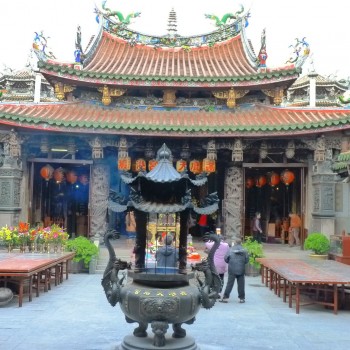
Lukang
When to visit: In Spring and Autumn
When to visit: https://www.lukang.gov.tw/eng/content/index.aspx
Lukang, the second-hugest and ancientest town in Taiwan, is a fascinating place to visit and is especially renowned for its delicious local cuisine and spectacular architecture.
It was once an important seaport and trading center in the country's northwest, although its standing has long since declined. There are over two hundred temples for tourists to visit, with Longshan and Matzu being popular.
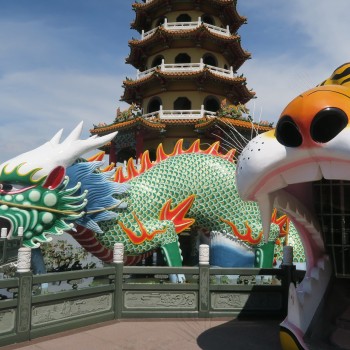
Dragon and Tiger Pagodas
When to visit: In Spring and Autumn
The Dragon and Tiger Pagodas is a remarkable and most exciting attraction two-tower temple located on the Lotus Pond in the Zuoying District of the Kaohsiung Municipality in the southern part of the Republic of China known as Taiwan.
It was built in 1951, and soon after, in 1976, the two temples were made too. Both of the towers have seven floors with yellow walls, red pillars, and orange tiles, and they are connected with the lake’s shore by a zigzag bridge. Double spiral staircases within the towers bring in and take everyone out while showcasing the interesting paintings that depict varied Buddhist and Taoist characters and ancient stories.
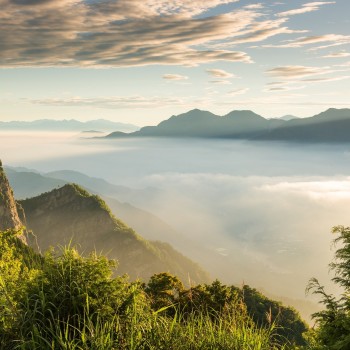
Alishan National Scenic Area
When to visit: November to April
The Alishan National Scenic Area is highly mountainous and contains twenty-five mountains, located in Alishan Township, Chiayi County, Taiwan. Home to the Tsou people renowned for their tea making,
Alishan is a gorgeous place to visit; exploring the hills, valleys, waterfalls, and forests is a magical affair, and the scenery is breathtaking to behold. Some numerous trails and paths will take you to some of the best viewpoints.
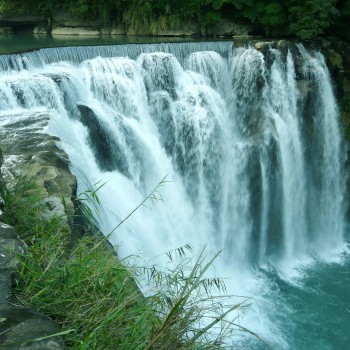
Shifen Waterfall
When to visit: November to April
Shifen waterfall, regarded as “Little Niagara,” is a famous tourist attraction in the Pingxi District, New Taipei City, Taiwan. It is situated between Dahua Station and Shifen Station of the Pingxi Branch Rail Line upstream of the Keelung River.
Shifen waterfall is a height of 25 meters; Its shape resembles the famous waterfall. All around the waterfalls, there are grows of dense forest. In the noise of these waterfalls, you can forget about everything and have a good rest because its landscape here is simply fantastic.
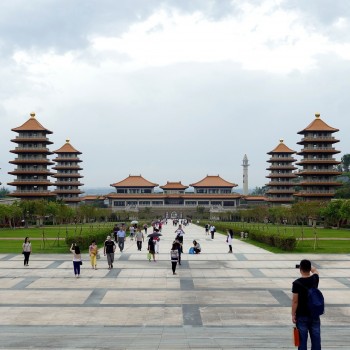
Fo Guang Shan Buddha Museum
When to visit: November to April
The Fo Guang Shan Buddha Museum, previously known as the Buddha Memorial Center, is a Mahāyāna Buddhist cultural, religious, and educational museum located in Dashu District, Kaohsiung, Taiwan.
The Buddha Museum combines traditional and modern elements. It is equipped with the facilities to assist in spiritual cultivation and attaining wisdom and serve as a site for culture and education.
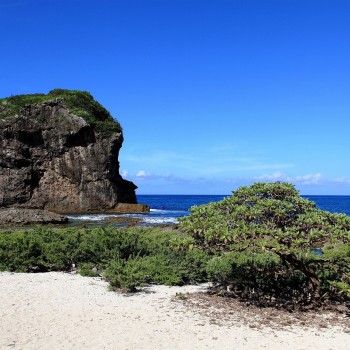
Kenting island
Regarded by many as the oldest national park in the country, Kenting is located in the south of Taiwan on the Hengchun Peninsula and is a trendy tourist destination.
Kenting island is famous and fabulous to explore; there are loads of beautiful fauna and flora, stunning waterfalls, magnificent coral reefs, lighthouses, and wonderful sandy beaches.

Kenting National Park
Regarded by many as the oldest national park in the country, Kenting is located in the south of Taiwan on the Hengchun Peninsula and is a trendy tourist destination.
Kenting island is famous and fabulous to explore; there are loads of beautiful fauna and flora, stunning waterfalls, magnificent coral reefs, lighthouses, and wonderful sandy beaches.
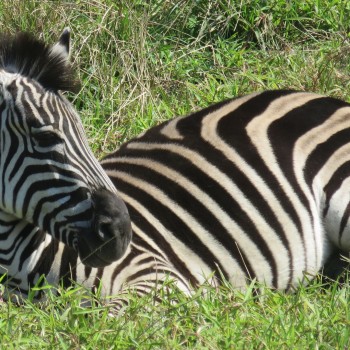
Taipei Zoo
When to visit: In Spring and Autumn
Taipei Zoo is one of the oldest and largest zoos on this island. It was founded in 1915. It has several sections and a total area of 162 hectares. Out of these, there is only 91 ha are available for visitors. You can easily see animals from Asia, Taiwan, and Africa in this zoo. Antelopes, Himalayan, Lions, rhinos, bears, and more than 135 species of birds. More than 5 million tourists from all over the world come to this zoo annually.

